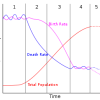
gilbertrollins
-
Posts
447 -
Joined
-
Last visited
-
Days Won
1
Reputation Activity
-
 gilbertrollins got a reaction from e_randolph in Professor-Student Relationships: How Close Is Too Close?
gilbertrollins got a reaction from e_randolph in Professor-Student Relationships: How Close Is Too Close?
Is there? Do you have any evidence that a majority, or even significant portion of intra-departmental relationships lead to harassment, exploitation, and favoritism? Why should we presume, cynically, that people in a position of power in the department will often exploit that position sexually? What motivates that argument? Your experience? A cross-section of data on departments?
Or the anxiety-inducing influence of gender scholarship narratives that are privileged in the English department?
-

-
 gilbertrollins got a reaction from s0ciology1992 in Chicago Social Science Winter Reception
gilbertrollins got a reaction from s0ciology1992 in Chicago Social Science Winter Reception
Several applicants have been waitlisted. Is there any progress? I hear there is a last minute scramble during which many slots will open up while attendees accept offers from other Winter Receptions. There is no further information on the Eventbrite.
-
 gilbertrollins got a reaction from Pennywise in The role of computer science in sociology
gilbertrollins got a reaction from Pennywise in The role of computer science in sociology
Bad Hessian is good. Also take a look at Michael Macy and his lab at Cornell, Fabio Rojas at Indiana, Chris Bail at UNC, and James Evans and his lab at Chicago. Computational people are having a bit of trouble making inroads into sociology - there's a lot to get worked out. But there is sufficient excitement and useful enough results coming out of the methods that it will gain ground and likely tip into more mainstream hires and pubs.
-
 gilbertrollins reacted to MaxWeberHasAPosse in Am I a good fit for sociology?
gilbertrollins reacted to MaxWeberHasAPosse in Am I a good fit for sociology?
I gotta say, if you want to study crim then you have to be open to gender/racial inequality. It's like saying you're interested in math but don't want to learn to utilize algebra. If you want to study the sociology of knowledge then you will have to be open to Marx and other critical thinkers. I suppose, what I am really saying is, you don't seem to have a good attitude.
-
 gilbertrollins got a reaction from Starbuck2015 in holy shit
gilbertrollins got a reaction from Starbuck2015 in holy shit
This view is not supported by the literature on the distribution of academic citations.
-
 gilbertrollins got a reaction from Whatishistoryanyway in weight of writing sample
gilbertrollins got a reaction from Whatishistoryanyway in weight of writing sample
I'm aware many of my ideas are anathema to what many sociologists believe, but my theses are not without evidence. The comments coming from the board that I do not understand first-course sociological principles, or properly understand the social-advocacy agenda of sociological research, are on the other hand without evidence of my experience with sociology.
I have taken several sociology and political theory courses and read a host of early modern social thought. Indeed one of my main mentors is a Marxian political theorist (that I work with such an individual despite our violently contrasting personal politics should I hope tell you something). I also have a strong reading of the history of economic thought, and therefore how economics relates to sociological and political interlocutors. Notably, it is precisely its failure to respond with sufficient force to many of the results in sociology, political science, and anthropology that motivates my transition away from economics.
But if it is easier for some members of the forum to dismiss my arguments out of hand because I "haven't read enough sociology" or "am limited by the narrow frames offered to me by economics," and that hence I ought to brace myself for the "harsh reality" I'll face when I matriculate -- be my guest. That is nice and easy ad hominem, and extraordinarily naive of my background and training.
My decision here is not unconsidered, nor are any of the ideas I've discussed.
-
 gilbertrollins got a reaction from Whatishistoryanyway in weight of writing sample
gilbertrollins got a reaction from Whatishistoryanyway in weight of writing sample
Alright look man, I just spent two pages explaining to you the particulars of which economic assumptions I think are good, and which are bad. In particular I discussed in detail that invariant preferences (what you're calling a "durable portfolio") is a bad assumption. I further explained that invariant preferences are not necessary for the derivation of supply and demand curves as is taught in mainstream economics. Pretty sure I cited Walras on that.
You're either not listening to, or don't understand some of the arguments I've made, because I'm not arguing from the "lenses than that offered to [me] by economics." I just got done talking about context, macro social influences, cited a collective action model for the origin of technology, and had a nice chat with you about preferences. Let me try to clear things up:
I said, "Ideas come from people," to which you reply: "And people tend to live in societies."
Precisely, which is why I argue technology emerges from collective action. And why I spent two paragraphs outlining how socially dispersed knowledge advances not just the experience of the individual, but the aggregate as well.
"You seem to operating on the assumption that all things work in a rational way. I contend that things are moving toward more uniform order, but that logical order is not an intrinsic quality of all reality. Thus, I believe it is apt to speak of things as more or less rational."
I have no idea what this means, but it is not an answer to the original question: what is your definition of rationality? Or a "logical order?"
"Increased productivity is not always a positive for workers, for example."
Yes it is. Technology may temporarily displace some workers, some of the time. But in the long run it provides an incredible gain to society. The long run secular trend of employment across developed, and now too developing countries, is upwards of 90% employment, with a good portion of unemployment being voluntary and frictional. Screw guns make it easier to turn screws. And Macbooks make it easier to create and disseminate information. Technology makes workers more productive, which makes the economy more productive, which everyone realizes in income gains. (If this is going to turn into a poverty argument -- know that I'm citing absolute wealth -- not relative.)
"Each technology is a new object in existence, too. Thus, it is a new temporal means to an ends-in-view, which means it changes the feasible set before a given individual in a given circumstance"
That is precisely what I argued., and that it expands the set of such opportunities.
"Our production systems produce in more standard ways, at more standard intervals, and demanding more standardized practices of workers."
That is empirically not true, but it was the observation of the midcentury social theorists you've been citing, whose exemplar of "worker" was a factory worker. In fact workers have on balance achieved unprecedented autonomy and creativity in their service work, since the machines do the majority of hard labor in our society now (remember services is a generic definition, not an allusion to waiting tables -- lawyers provide services). Of course lots of factory work has gone overseas, but you will see the same substitution away from manufacturing in China eventually too. That is the secular trend. First the machines take care of agriculture, then manufacturing.
"Following the definition that you’ve offered here, we can look at how food is produced, distributed, and consumed in modern life – if is produced in more standard ways (i.e. animals moved through an industrial production system), distributed in regular intervals and in standardized ways, and consumed by a population that is unfamiliar with the fact that the uniform slab of whatever is sitting before them used to be a particular organism n – a life process
With due respect to your ethics about what you eat -- the Green Revolution, industrial farming, and industrial food processing have improved the diet of the world's people such that the average life expectancy of a human being in a developed country has more than doubled, and is quickly erasing hunger in underdeveloped countries. Five out of six billion people in the world lived on under $1 a day about 50 years ago. That proportion has flipped, so that by the turn of the century five out of six billion people had escaped the fate (Bottom Billion, Paul Collier; and Escape from Hunger and Premature Death,
Robert Fogel).
"Institutional power is distributed in positions occupied by real people in who perform their duties off of a standardized script"
Actually organizational sociology goes to show just how non-standard, tacit, and fluid social roles are in an institution.
"although this particular monetary policy did accompany a period of privatization that political leaders exploited in very corrupt ways."
Exactly. "Privatization" is not "market" reform -- it is plutocrats selling government owned enterprises to their buddies at rock bottom rates. The effect is to just transfer a state-owned monopoly to a private monopolist. There's nothing "free market" about it. I like markets for the same reason you like democracy -- competition -- the antithesis of monopoly. I addressed the impact of stabilizing a currency -- which was the purpose of pegging to the dollar -- not the plutocratic misadventures of Argentinian cronies.
"Am I to understand that you believe that capitalism has always existed, that is tantamount to concepts like economic growth and technological innovation"
Yes, trade has always existed. Technological increase has only existed since the Industrial Revolution. Trade and innovation/technology are not the same thing -- not by a long shot -- nor does one necessarily imply the other, in either direction.
" and that Weber’s argument is really useless because there was no actual change in the social system of production?"
Straw man. I conceded the enormous change in technological advance and tried to offer some reasons for it, in detail. My argument here, from the beginning, has been that the advance of technology has not made people more alienated, "rational," calculating, and that on balance and in the long run it has benefitted society enormously. Because of technology we have metropolises with tens of millions of people living in them in relative harmony.
"You seem to be arguing that there is no need for a society to adopt new principles, narratives, values, practices, etc."
Again, this statement just completely ignores my argument. I said: "[My argument on technology] is very different from a conservative argument that "X social technology (norm) is the best we can do and we should not try to make it progressively better." I merely argue that to-date, many of these social and mechanical technologies, in the form of bureaucracies too, are the result of our best and quite-good efforts so far."
"How do you propose to study social mores without studying meaning?"
What's the difference? I'm quite sure I made no such proposal.
"Again, models are not reality. This can be helpful, but it also distorts understanding of the actual decisions that people make."
Do you buy less coffee when the price goes up? And do you change jobs when someone offers you a higher salary elsewhere? Do you prefer to purchase things when they are on sale? Do manufacturers scale back inventories when they're not selling, and lower their prices?
-
 gilbertrollins got a reaction from gradientvector in Can/should an Economic major apply for a PhD program in Sociology?
gilbertrollins got a reaction from gradientvector in Can/should an Economic major apply for a PhD program in Sociology?
Most empirical studies in economic sociology that I've read concentrate on art, legal, and financial markets. Economic sociologists usually look for situations where the assumptions of neoclassical economics break down, and art and financial markets are nice expositions of that (changing tastes, lots of persuasion, network effects, difficult or impossible to measure and pay marginal product, etc).
I think given your interests in cities (assuming that transportation falls under that rubric too), you should focus on learning about urban sociology. You will find that a lot of the methods are not quantitative, but a lot has been learned with the qualitative methods used, and you will probably find the theories about cities and neighborhoods a lot more novel and interesting than the criticisms of neoclassical economics in economic sociology, which since most of them have been done by heterodox and institutional economists, you're likely familiar with.
Work like Mark Granovetter's and Richard Swedberg's is considered seminal in economic sociology, but so far as I understand it, this kind of (mostly) arm chair theory is just not salable on the academic job market anymore, so you're right to look for more applied stuff. Viviana Zelizer's work provides an outstanding example. James Montgomery comes to mind.
@RefurbedScientist: I should have been clearer that, like you recommended, I was saying that she should find fields and faculty in sociology to which she'd like to apply statistical estimation ("[applied] statistical generalist").
-
 gilbertrollins got a reaction from gradientvector in Can/should an Economic major apply for a PhD program in Sociology?
gilbertrollins got a reaction from gradientvector in Can/should an Economic major apply for a PhD program in Sociology?
Econ soc is roughly split into "try to prove economics is wrong" Marxian econ soc and "enrich and amend economic thinking with sociology" econ soc. For the former: Berkeley, Wisconsin (others?). For the latter: Duke, Cornell. There are pockets elsewhere. If you can land in the top 10, do that regardless your specialty because you'll be able to branch out and be enterprising. Computational soc is a tiny field. Math soc is almost dead. Proving theorems, even creative theorems, will get you nowhere in sociology. Clever applied rational choice models can gain traction with empirical validation; nobody is interested really in the "look what else I can show is rational" kind of stuff that's popular in sociological and behavioral economics. Statistics are welcome in just about every subfield of sociology.
Don't focus on topics and applications, just say you love statistics, are really good at it, and want to apply to other general fields in sociology. Research people in various fields who are working on a (relatively broad) sample of topics you're interested in, and express an interest in learning more. Aim at the top 20 at a statistical generalist and you should be ok, with a relatively strong possibility of top 10 if your letters are good or you have sociological research you've done, is in R&R, etc.
-
 gilbertrollins got a reaction from Darth.Vegan in Content analysis Project
gilbertrollins got a reaction from Darth.Vegan in Content analysis Project
None of the other links will work for you, but clicking "Syllabus" and then clicking through until you get the PDF should. https://chalk.uchicago.edu/webapps/portal/frameset.jsp?tab_tab_group_id=_2_1&url=%2Fwebapps%2Fblackboard%2Fexecute%2Flauncher%3Ftype%3DCourse%26id%3D_113983_1%26url%3D
Good luck.
-
 gilbertrollins got a reaction from gellert in What makes a top program?
gilbertrollins got a reaction from gellert in What makes a top program?
Also, I find the indictment that one or another analysis or mode of analysis is "limiting" to be really pretentious. The statement implies that the person saying it has access to truths that are beyond the bounds of the very mode of reason her opponent is thinking within. It's a fancy way to call someone stupid, and in that, not a particularly constructive argument. If one wants to invite people to see things their way, a better way to do that then indicting the entire mode of logic the other person is thinking within is to address their claims and show how they fail. Otherwise we just start lining up into philosophical camps, accusing one another of subscribing to the wrong ism, and essentially name calling.
-
 gilbertrollins reacted to RefurbedScientist in What makes a top program?
gilbertrollins reacted to RefurbedScientist in What makes a top program?
I was responding to this point for the most part.
Did I misunderstand it? You appear to be refuting the OP's hypothesis about the connection between program rank and publishing in top journals.
The first half of that is right. There is an undeniable correlation between program rank and frequency/quality of publications. The second half I left as an open question (I said: "The more interesting question is whether faculty publishing patterns affords any advantages to students in those programs."). In other words, I can't explain the correlation just from my anecdotal experience. But from the (abbreviated) list of recent hires, we can see that those at the better ranked schools land the "better" jobs and had more publications. I don't know if this is a selection effect (those students would have done as well at a school ranked 50 as at a school ranked 5), or a status bias (the school's reputation alone gives its students a leg up), or network effects, or if it's an organizational thing, or if it's that the actually training is better at a higher ranked school than a lower one. You seem to be willing to rule out the many possibilities without a shred of data outside your own experience.
As for your critique of the data, I'm not sure what you mean. The soc-job-rumors list gets to be a pretty comprehensive list of academic hires, especially if you follow through the whole hiring season. I don't think people select themselves onto the list; the forum members collect the data themselves (but I can't say for certain if those people aren't one and the same). All that said, of course I don't have access to data on the real population of academic hires. But some data is better than no data as long as we know it's limitations. As far as I'm concerned, the burden of proof falls on you to show otherwise.
Ok then on your main point:
On the first sentence, it's clear that publications in top journals decrease more or less linearly as we move down the ranks. Berkeley faculty and students appear more in the top journals than CUNY students, and CUNY students more than FSU students (just to pick schools randomly from the distribution-- no disrespect to any of them). So you're right, all students and faculty at R1s (almost by definition) publish more than students and faculty as non-R1, but even with that category the variation is systematically associated with rank.
And then I'm trying to understand the second half of what you say there. Do you mean, because not all people at lower ranked programs aim for an academic job, that we shouldn't count them toward the "job outcomes" calculation? For one, as I said earlier, I'm operationalizing job outcomes as TT academic jobs, because that's how PhD granting sociology programs are oriented and what the training is for (not because I believe it's the only worthwhile career choice). So by that measure, folks who get the PhD but don't go on to TT academic jobs are not seeing a good job outcome.* Or are you suggesting a Simpson's paradox? In either case, your hypothetical question doesn't strike me as realistic (i.e. You created a hypothetical where 100% of the lower ranked PhDs who want a TT job get one, but only 50% of the higher ranked program PhDs who want a TT job get one. If you ask me which looks better in the hypothetical you imagined, then you're leading me to only one possible answer. But who can say if that hypothetical fits reality? Show me the unranked or ~50 ranked program that places a higher percentage of its PhDs in TT jobs than Berkeley and Penn).
But right, on the whole, we agree totally. Mentorship, relationships, training, etc. all make a student more likely to publish. And publishing brings the job offers. But based on the incredibly strong correlation between program rank and publishing, we have to take rank seriously. What does it proxy? Does it proxy better training, better mentorship, better networks? That's the OP's question. As a matter of indisputable fact, the top ranked programs place students better, on average. So what are the causal factors underlying the correlation?
And I couldn't agree more with you on "Rather than focusing on metrics like ranking actually do the work and talk to the programs and the people. Every program director I've talked to has been open about placement, about publishing, and about what they will do to prepare you for the job you want." But if the job you want is a TT R1 job in a sociology department, it would irresponsible to advise prospectives to ignore rank altogether. Great fit at FSU won't compensate for the je ne sais quoi at Princeton, unfortunately.
*And if you don't want a TT R1 job in a sociology department, then rank (and publishing) may matter much less. But then it's worthwhile considering whether a PhD is the most useful way of achieving that goal. It may be, but it's unlikely.
-
 gilbertrollins reacted to RefurbedScientist in What makes a top program?
gilbertrollins reacted to RefurbedScientist in What makes a top program?
From the ASA webpage I linked:
"Using the traditional ASA indicator for the acceptance rate (that is, the number of accepted manuscripts divided by the number of overall decisions), ASR’s acceptance rate for the year was 6 percent. (Using the method of calculating the acceptance rate proposed by England [in Footnotes, March 2009], in which acceptances are divided only by final decisions, the ASR acceptance rate was 9 percent.)"
The range I gave accounted for both ways of calculating acceptance rates. No matter how you slice it, any percentage <50 means you have better odds of not getting published, and we're way below 50%. Obviously there are things you can do that make your work more publishable than the average submission, but the "Not exactly difficult if you stick with it" argument doesn't have a leg to stand on. The vast majority of papers submitted to ASR (for example of a highly selective journal) never make it into its pages.
On your other counterarguments, we risk reaching an impasse if neither goes out and gets the data. Let me take the first crack. First, there's plenty of research in economics that the top journals are dominated by faculty at top ranked departments. Economics is definitely more stratified than sociology, but take it as a strong case. Second, look at the recent hires in sociology this year (scroll down to this list). I can't take the time to randomly sample from this group, but just going from top to bottom I looked up their CVs. The obvious trend is that students who went to higher ranked programs have more publications at better journals and get jobs at higher ranked program.
1. PhD from top 25 program, hired at elite SLAC, has an AJS, a book, and two other pubs
2. PhD from ~90 program, couldn't find info on pubs
3. PhD from top 50, hired at ~80 public, 5 or so pubs in mid-tier journals
4. PhD from top 5 program, hired at top 25, lots of pubs in ASR, SF, etc. (not a fresh PhD)
5. PhD from top 25, hired at unranked public, 3 pubs in low tier journals
6a. PhD from top 5 program, hired at top 25 program, 7 pubs in top-mid tier journals
6b. PhD from top 5 program, hired at top 25 program, 5 pubs in mid tier journals and some books (an ethnographer)
7. PhD from top 50 program, hired at decent SLAC, 2 pubs in mid tier journals
I'll stop there, but the pattern stays the same. Now we can quibble about how to categorize the Journal of Health and Family (mid tier, low tier?) but the trend would be the same. And finally, and I think this should settle it, let's look at the most recent issues of some top general and specialty journals. What are the author affiliations?:
1. ASR April 2014: UC Berkeley, University of Memphis, UC Davis/Penn State, NYU/Penn, ESSEC Business School (france), UNC-CH, Stanford/Chicago
2. AJS January 2014: UCLA, Texas/Iowa, Michigan/Indiana, Columbia/Iowa
3 Social Forces March 2014: Cologne, Oregon State, Trinity College Dublin, Univ Toronto/Northwestern, Utrecht, Indiana, UMASS-Boston, Purdue, Penn state, Stanford/Princeton, , Chinese university of Honk Kong, UW Madison, UC-Riverside, UWashington/Uconn, Arizona
4. Gender & Society June 2014: Marquette, USC, CSU Northridge/UCLA, Penn, Ohio State/ Southwestern, CUNY
5. Soc of Ed April 2014: EUI (Italy), NYU, UW Madison/Iowa, NYU/Penn
So how to interpret these? For one, it's obvious that not every paper is by a top 25 program. But the top programs are definitely overrepresented here (a "/" indicates multiple authors from different programs. Many of the co-authorships are between advisers and former students who landed jobs at lower ranked school, as is the norm). Also, as you move down a tier from, say, ASR to Social Forces, the field opens up a bit.
So in response to your "I'd like to see a source for this idea that faculty at lower ranked programs aren't publishing as much in top journals": I don't know of any systematic study in sociology to match those down in economics, but a glance at the data support my (uncontroversial) claim that faculty at lower ranked programs appear less frequently in top journals. Of course, that's not news to anyone who regularly reads the top journals. The more interesting question is whether faculty publishing patterns affords any advantages to students in those programs.
As for GRE/GPA. You say "GRE/GPA doesn't show student quality and most programs know this. Ask them and you will see." You will recall that I said that students with GRE/GPA aren't somehow inherently "better" students. Just that they select into (and are admitted to) higher ranked programs, and then PhDs from higher ranked programs have more job market success (see above list of recent soc hires). Thus, the correlation between GRE/GPA and job market outcomes > 0. And why ask professors what they think about GRE/GPA when I could see what they do (we are sociologists after all; better to observe in situ than take a post-hoc account)? Look at the results board here on Grad Cafe (admittedly not a random sample), and you will note that higher GRE/GPA candidates get accepted at higher ranked programs (and usually choose those over lower ranked programs). To argue otherwise is to defy the data. I also strong recommend you to this conversation on Orgtheory.net: http://orgtheory.wordpress.com/2011/05/09/an-inconvenient-truth-about-gre-scores/
As for the more general point: "You also failed to miss my overall point because you were so focused on your statistical argument. It's not the program ranking that matters but the networks and people you become enmeshed with during the process. "
I apologize if I missed your overall point. I was responding to the specific arguments you made to the OP, which were factually incorrect. But it looks like I missed the wood for the trees. On your overall point that "networks matter", I wholeheartedly agree. That networks matter regardless of rank is of course ridiculous. The most high-value (for getting a job anyway) networks accrue at the higher ranked programs. Of course, you show plenty of anecdotal evidence that high value networks can exist outside of the top ranks. I can't dispute that, and it sounds like your program does a great job attracting top candidates and students. But a few negative cases do not disprove an overwhelming trend.
Now let me be quite clear. I don't think rank carries some inherent value. Especially as it's measured by USNEWS, it's a purely reflexive proxy for prestige. There's all kind of status bias there. But the problem is that the status bias in rankings has material consequences on the lives of job candidates. That's nothing to sneeze at. So it's irresponsible to advise people to "ignore rank, focus on all the other stuff" when going to a program with a low rank affects your material wellbeing later on. This is not to say "ignore all the other stuff, just go for the highest rank". Nobody promotes that; me least of all.
And then, following Bourdieu, we know that the symbolic capital of rank can buy other forms of capital: the networks, the talent, and the funding. So rather than X --> Y, where X is the meat-n-potatoes of a program and Y is the rank. We have Z-->Y--> X, where Z is some historical unknown that locked us into path dependency. And finally, none of what I am saying is new or surprising; this conversation has been had many times. e.g. http://asr.sagepub.com/content/69/2/239.short
Finally a disclaimer: for the sake of argument, it is easiest to operationalize "job market outcomes" as a function of the rank of the hiring program. I don't believe these are the only careers people should aspire for or pursue. The more we diversify, the better the outcomes for all of us. And if a TT job at an R1 (never mind in the top 25 soc programs) is not your career of choice, then it's probably not necessary to go to a top ranked program. But because the PhD granting programs are almost exclusively oriented toward placing PhDs in academic jobs, it makes the most sense to use that benchmark in argument. Again, that doesn't mean I think everyone needs to go that road.
Edit: spelling corrections
-
 gilbertrollins got a reaction from Whatishistoryanyway in holy shit
gilbertrollins got a reaction from Whatishistoryanyway in holy shit
If the elite conversation in sociology is a sham, I don't understand why you seem to have taken the majority of your position from it. The positions you're espousing have been popular and in many facets central to the scientific conversation in elite sociology for decades. I apologize for not engaging the particulars of what you said further.
For the kids at home: your taste or distaste for the social structure you face in the academy notwithstanding, it would be wise to take into account the situation as it is. No matter what rank of graduate school you get in to, your ability to influence the academic job market and rate at which other people cite papers from which journals is about zero in the limit, so it would be wise to make your career choices based on how things are versus how you would like them to be.
-
 gilbertrollins got a reaction from Darth.Vegan in holy shit
gilbertrollins got a reaction from Darth.Vegan in holy shit
If the elite conversation in sociology is a sham, I don't understand why you seem to have taken the majority of your position from it. The positions you're espousing have been popular and in many facets central to the scientific conversation in elite sociology for decades. I apologize for not engaging the particulars of what you said further.
For the kids at home: your taste or distaste for the social structure you face in the academy notwithstanding, it would be wise to take into account the situation as it is. No matter what rank of graduate school you get in to, your ability to influence the academic job market and rate at which other people cite papers from which journals is about zero in the limit, so it would be wise to make your career choices based on how things are versus how you would like them to be.
-
 gilbertrollins got a reaction from Darth.Vegan in holy shit
gilbertrollins got a reaction from Darth.Vegan in holy shit
Well like I said I think that's the plan unless you're ok with not being very engaged as a researcher. I think if you can get an unfunded offer from a T20 and the department can also provide students for you to talk to who have made it work through RA/TA pay, that's a good bet too (lots of people have noisy signals, and you may be stronger than other candidates who got funding that year - things change a lot after year 1 and 2).
And I want to stress that if you're interested in being mainly a teacher, then getting a Ph.D. and going onto the market for lower ranked programs is absolutely worth your while, because there are indeed jobs out there further down in the ranks, and there are a lot of kids out there lined up to pay you to teach them. In a perfect world, people who want to research would bifurcate into different doctoral programs than people who want to teach, and researchers would have to fend for their own money (and not siphon off teaching revenues), leaving college teachers getting paid much more than they currently do. I don't like the situation where teaching is low status, and think it's rather disastrous for kids who have to wade through bad teachers. But it's the world as it is now.
-
 gilbertrollins reacted to Chris Bosh the Dinosaurman in What should I do this fall?
gilbertrollins reacted to Chris Bosh the Dinosaurman in What should I do this fall?
Try applying to market research positions (these hard to get but your social science skillset probably fits them well). If you know you want to go to grad school next year and only want to work part-time, you could try working for a tutoring company.
Taking a year off is often a good idea. I didn't apply last fall and am very happy that I did this. Applications sent after senior year are often better because you have your senior awards on your CV and you have more off-time to concentrate on your applications and your GRE during your gap year. College is way more distracting than work!
Also, if you want some advice about writing applications, shoot me a message.
-
 gilbertrollins got a reaction from TaewooBurns in holy shit
gilbertrollins got a reaction from TaewooBurns in holy shit
I think the important choice, concerning ranking cutoffs, is not placement statistics or other exogenous factors, but your own preferences about research and teaching. If you want to change science and be a researcher, that is going to be unbelievably difficult to do outside of top of the pile career tracks. Prospects for upward mobility are better in sociology than say economics, but not great in absolute terms. If you love sociology, and want badly to teach, and are willing to do so for about as much money as a high school instructor, I think it's probably worth it to go to just about any Ph.D. granting department. If you want to change the science and are considering programs outside the top 30 or 40, I think you should reconsider your preferences.
-
 gilbertrollins got a reaction from jacib in Computational Sociology
gilbertrollins got a reaction from jacib in Computational Sociology
This is great advice. If you like writing programs and proofs because of the elegance and gee-whiz factor, then you're going to need to get connected to some of the debates in sociology, economics, or political science, if you're going to import computational methods, because it's a struggling subfield in all three of those disciplines. Economists are not impressed with agent based modeling because there have not been any really huge breakthroughs (in terms of solving fundamental problems in the mainstream), and agent based models require way more assumptions about agents than does traditional modeling in econ, where parsimony still rules. I can't say a lot about political science, but they're still catching up to econ in terms of formal theory. There is better reception for quantitative work, i.e. more of it and more people who understand more sophisticated levels of it, in general in political science than in soc, though.
In soc there is a small and vigorous crowd of math and physics orphans who got bored with pure logic and wanted to switch into something that is more applied to people and all their big feels. There is a lot of solidarity among these people, but their main concern right now is how to get the stuff into some relevance in the mainstream of soc. Outside some statistics, sociologists are not fans of thinking of behaviors themselves in formal terms. Rational choice died a slow and painful death in sociology, and people still stop by its grave to take a piss every now and then. If you're coming from the quant side into soc, your biased sample will make it look like sociologists do a lot of social networks stuff - and that is incorrect. There is, again, a nice solid crew doing networks in sociology, but it is a somewhat nascent subfield. Most people who talk about "social networks" in sociology are just using it as a techno-jargony way to refer to more traditional sociological theory.
One option for you is to get yourself in a computer science PhD program. Those guys can pretty much go wherever they want and do whatever they want, is the impression I get, and they have tons of options in the non-academic job market. Doing that and getting some crossover in social science would put you in a really good position for private employment doing data science.
-
 gilbertrollins got a reaction from Pennywise in Phoning Departments for Results?
gilbertrollins got a reaction from Pennywise in Phoning Departments for Results?
I would send a very polite and short email to a secretary asking if the committee has come to a decision.
-
 gilbertrollins got a reaction from FertMigMort in Poll for advanced students & faculty: What were the most difficult aspects of graduate school?
gilbertrollins got a reaction from FertMigMort in Poll for advanced students & faculty: What were the most difficult aspects of graduate school?
How do you know when you've done enough in a day, and it's ok to go relax?
-
 gilbertrollins got a reaction from overlyresearched in Rice Sociology?
gilbertrollins got a reaction from overlyresearched in Rice Sociology?
I've definitely heard of people studying food: a girl i met recently did an entire thesis on buffalo mozzarella. But if you're going to study rice, it will help to have a specific theoretical question going in because it is otherwise such a large topic.
-
 gilbertrollins reacted to faculty in Get in with a GRE in the 140's?
gilbertrollins reacted to faculty in Get in with a GRE in the 140's?
GRE scores are only one piece of an application, although they are often used for quick weeding.
If it has been so long since high school (and perhaps undergrad), you want to signal to schools that you're willing to put in the time to learn new (or relearn old) tricks. If you don't get in this application cycle, it would be a good idea to study to improve those scores for the next time around.
-
 gilbertrollins got a reaction from ohgoodness in Poll for advanced students & faculty: What were the most difficult aspects of graduate school?
gilbertrollins got a reaction from ohgoodness in Poll for advanced students & faculty: What were the most difficult aspects of graduate school?
I find that I end up putting so much pressure on myself that I burn out completely and associate a lot of anxiety with work. On that margin, I wonder if deliberately forcing breaks, social time, and me time, would actually increase productivity.







